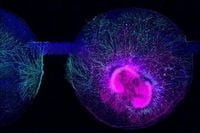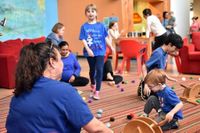The White House’s recent announcement of a potential link between acetaminophen use during pregnancy and autism has reignited the national conversation on what causes autism—and how best to support those living with the condition. On September 22, 2025, the administration unveiled a sweeping new initiative: the Autism Data Science Initiative (ADSI), which will channel $50 million in National Institutes of Health (NIH) funding to about a dozen projects aimed at uncovering the causes of autism and improving outcomes for autistic individuals. The move, while applauded by some, has also sparked debate among researchers and advocates who argue that the U.S. should focus more on developing treatments and support systems rather than relitigating old, debunked claims about vaccines.
According to ABC News, the ADSI will bring together leading institutions—including Boston Children’s Hospital, which will investigate environmental exposures that could contribute to autism, and Drexel University, which will study the role of diet and its interplay with other environmental factors. “Our Autism Data Science Initiative will unite powerful datasets in ways never before possible,” said Dr. Jay Bhattacharya, NIH director, in a statement. “By bringing together genetics, biology and environmental exposures, we are opening the door to breakthroughs that will deepen our understanding of autism and improve lives.”
Health and Human Services (HHS) Secretary Robert F. Kennedy Jr. has made it clear that he views the rising rates of autism diagnoses in the U.S. as an “epidemic.” He has pledged to get to the bottom of what’s behind these increases, indicating that the government will “closely examine” vaccines as one possible factor. This declaration, however, has drawn criticism from many in the scientific community, who point out that the hypothesis linking vaccines to autism has been thoroughly discredited.
“A lot of funding has gone into understanding causes, and this has been over decades, and we know that it’s a complex diagnosis, and so we see likely genetic and environmental factors playing a role,” Dr. Anna Krasno, clinical director of the Koegel Autism Center at UC Santa Barbara, told ABC News. “What we do know from research, and a lot of rigorous research, is that genetics play a very primary role.” She added, “It feels like we’ve done the work around the causal piece, and now we really need to be thinking about how to support autistic individuals.”
In a statement to ABC News, an HHS spokesperson defended the new initiative, saying, “American families voted for progress in uncovering the root causes of autism, and HHS is delivering. The Autism Data Science Initiative (ADSI) is designed to advance understanding of autism’s causes while also ensuring research translates into better care, supports and treatments. Through mandatory community engagement plans, ADSI ensures that every project remains aligned with the needs and values of autistic individuals and their families, bridging the gap between discovery and real-world impact.”
While the search for causes continues, many experts argue that the focus should shift toward improving treatment and support for those already diagnosed with autism spectrum disorder. The Centers for Disease Control and Prevention (CDC) outlines a range of treatment options, including behavioral, developmental, educational, social-relational, psychological, and complementary therapies. Dr. David Mandell, professor of psychiatry at the University of Pennsylvania’s Perelman School of Medicine, emphasized the importance of early diagnosis and intervention. “We want to diagnose kids very early,” he told ABC News. “We want to get them into treatment and early intervention quickly. We want to get them speech therapy, occupational therapy, physical therapy, if needed.”
Mandell explained that the best evidence for treating autism lies in behavioral interventions that encourage certain behaviors and improve pivotal skills such as initiating communication. “We want them to receive interventions that improve their social communication and increase their tolerance for change in their environment, which are the two hallmark symptoms of autism, and we have many, many trials of related interventions that show that many autistic children improve when they get these treatments,” he said. However, Mandell also noted that more research is needed to better match children to the right treatment. “The idea of tailored treatment, of looking at the specific genetic profile of an autistic child or adult and then thinking about what medications are related to that genetic pathway, I think that’s a very exciting area for exploration.”
In an unexpected move, the administration also announced the start of the approval process for leucovorin—a drug typically used in cancer care—for potential use in autism spectrum disorder. According to reporting from both ABC News and other outlets, leucovorin has shown some promise in small studies for children with specific genetic abnormalities associated with autism. Yet, many experts caution that the evidence is still quite limited. “We just need a lot more information before statements are made around in a definitive way about how this might be helpful for autism. … It would be highly unlikely there would be one thing that would help everybody,” Krasno said. She emphasized the need for broader support programs that help autistic individuals build skills and succeed across the lifespan.
The U.S. Food and Drug Administration (FDA) moved quickly, initiating the approval process for leucovorin calcium tablets on September 26, 2025, as part of a push from the Trump administration to identify new treatments for autism. However, some experts have called this move “extremely premature,” pointing out that more rigorous, large-scale studies are needed before the drug can be recommended for widespread use in autism treatment.
As autistic individuals transition to adulthood, they often face what experts call a “services cliff”—a steep drop-off in available support and resources. “There really hasn’t been the acknowledgement that autistic children become autistic adults and they, say, seek higher education and they seek employment,” Krasno told ABC News. “Perhaps moving to college, or some big transition, and there’s a significantly less amount of support.” Mandell echoed these concerns, noting that when autistic individuals reach ages 18 to 21, many of the services that supported them as children disappear, leaving them to navigate an adult system that is often ill-equipped to meet their needs. “We need to be bolstering that adult service system for people across the spectrum, for people with very high support needs and people with lower support needs,” he said.
Despite the high-profile focus on causes, especially the suggestion that vaccines may be to blame, the scientific consensus remains firm. The idea that vaccines cause autism originated with a fraudulent 1998 study, which was later retracted and thoroughly debunked by subsequent research. “We have two-and-a-half decades of rigorous, large-scale studies showing that whether you got vaccinated, the timing of your vaccine, which vaccines you got, or what preservatives were in those vaccines, they don’t cause autism,” Mandell said. “To relitigate, that means putting resources towards studies that could be put towards looking at treatments or looking at other more legitimate environmental causes or looking at services and supports and things that might improve quality of life.”
During the White House announcement, Kennedy also claimed that between 40% and 70% of mothers with autistic children believe their child “was injured by a vaccine” and argued that it was important to listen to these mothers “instead of gaslighting them.” Mandell questioned the source of those figures, suggesting that persistent misinformation is to blame. “The reason [mothers] think that is because people in authority, in positions of authority, have been telling them that, and they are using fake data to promulgate this false hypothesis,” he said. “When people started telling us that [vaccines cause autism] in the late 1990s and early 2000s, we did believe that, and we put lots of resources into studying it, and we did those studies and found that there was no causal link. So yes, we should lay this to rest.”
As the Autism Data Science Initiative gets underway and the FDA weighs new treatment options, the debate over the best path forward for autism research and care in the U.S. remains as lively—and as urgent—as ever.



